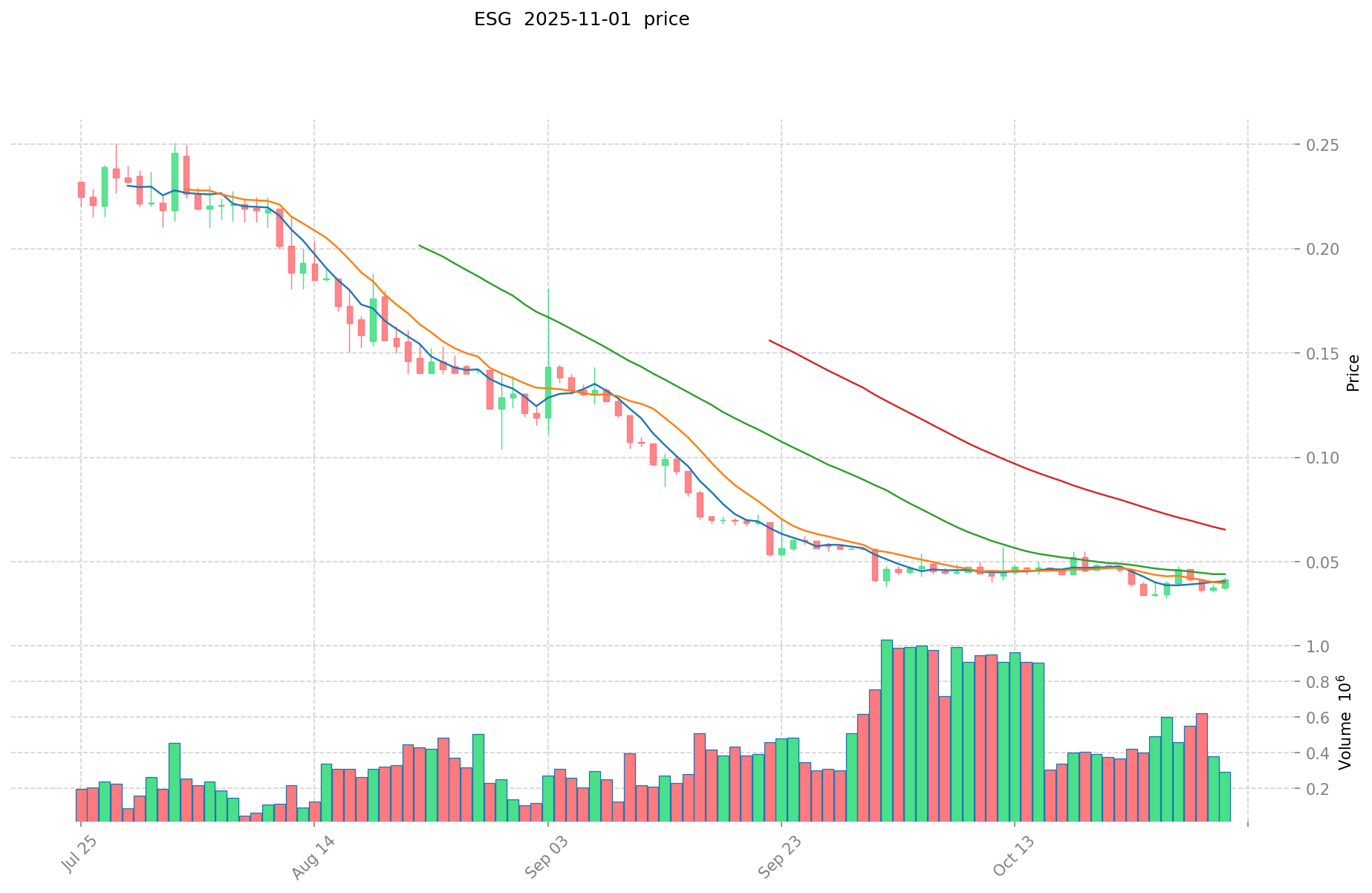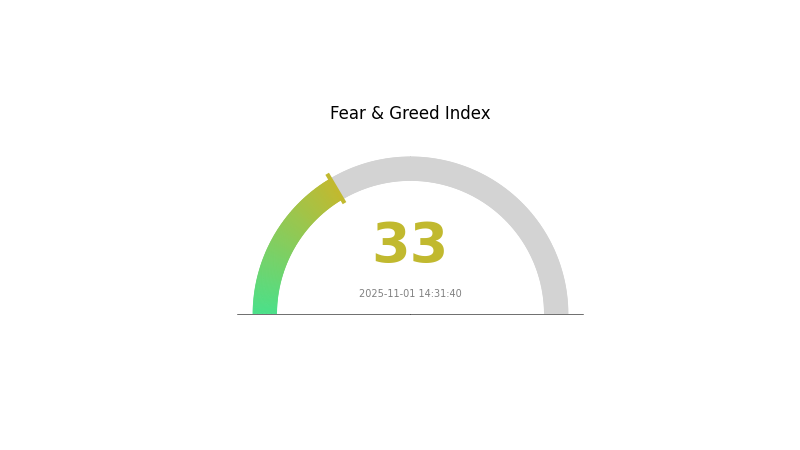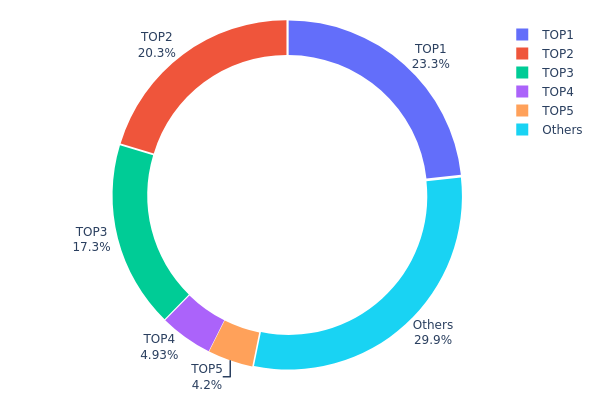2025 ESG Price Prediction: Navigating the Green Revolution in Corporate Valuation
Introduction: ESG's Market Position and Investment Value
ESG (ESG), as a token focused on environmental, social, and governance initiatives in the cryptocurrency space, has made significant strides since its inception. As of 2025, ESG's market capitalization stands at $111,748.5, with a circulating supply of approximately 2,850,000 tokens and a price hovering around $0.03921. This asset, often referred to as a "green crypto," is playing an increasingly crucial role in promoting sustainability and responsible investing within the blockchain ecosystem.
This article will provide a comprehensive analysis of ESG's price trends from 2025 to 2030, taking into account historical patterns, market supply and demand, ecosystem development, and macroeconomic factors, offering investors professional price predictions and practical investment strategies.
I. ESG Price History Review and Current Market Status
ESG Historical Price Evolution
- 2022: All-time high of $3.83 reached on November 21, marking a significant milestone
- 2024: Market downturn, price dropped to historical low of $0.03359959 on October 26
- 2025: Slight recovery and stabilization, price fluctuating around $0.04
ESG Current Market Situation
As of November 1, 2025, ESG is trading at $0.03921, experiencing a 24-hour decline of 5.86%. The token's market capitalization stands at $111,748.5, with a circulating supply of 2,850,000 ESG. Despite the recent downtrend, ESG has shown a positive 7-day performance with an 11.54% increase. However, the longer-term outlook remains challenging, with a 30-day decline of 2.55% and a substantial 81.39% decrease over the past year.
The token's all-time high of $3.83, achieved on November 21, 2022, now seems distant, with the current price representing a significant drop from that peak. The total supply of ESG is capped at 49,000,000 tokens, with only 5.82% currently in circulation, indicating potential for future market dynamics as more tokens enter the market.
Trading volume in the last 24 hours reached $12,321.13536, suggesting moderate market activity. With a market dominance of 0.000049%, ESG remains a niche player in the broader cryptocurrency landscape.
Click to view the current ESG market price

ESG Market Sentiment Indicator
2025-11-01 Fear and Greed Index: 33 (Fear)
Click to view the current Fear & Greed Index
The crypto market is currently gripped by fear, with the sentiment index registering at 33. This indicates a cautious atmosphere among investors, potentially presenting buying opportunities for those with a higher risk tolerance. However, it's crucial to remember that market sentiment can shift rapidly. Traders should stay informed, diversify their portfolios, and consider using tools like stop-loss orders on Gate.com to manage risk effectively in this uncertain climate.

ESG Holdings Distribution
The address holdings distribution data provides crucial insights into the concentration of ESG tokens among different addresses. Analysis of this data reveals a significant concentration of ESG tokens among the top holders. The top five addresses collectively control 70.03% of the total ESG supply, with the largest holder possessing 23.26% of the tokens.
This high concentration level raises concerns about potential market manipulation and price volatility. The top three addresses alone hold over 60% of the tokens, which could lead to substantial price swings if large quantities are moved or sold. Such concentration also implies a lower degree of decentralization, as a small number of entities have considerable influence over the token's circulation and potentially its governance.
However, the presence of a substantial "Others" category, accounting for 29.97% of holdings, suggests some level of distribution among smaller holders. This balance between major holders and a diverse base of smaller investors could contribute to market stability, provided the larger holders maintain their positions. Overall, the current distribution reflects a market structure with significant centralization tendencies, which may impact ESG's long-term stability and adoption potential.
Click to view the current ESG Holdings Distribution

| Top | Address | Holding Qty | Holding (%) |
|---|---|---|---|
| 1 | 0xcd8c...a90955 | 11397.63K | 23.26% |
| 2 | 0x54a5...30d9e1 | 9959.88K | 20.32% |
| 3 | 0x33d9...430cc2 | 8493.82K | 17.33% |
| 4 | 0x0365...f42fad | 2415.69K | 4.92% |
| 5 | 0x4fc3...2440e8 | 2058.81K | 4.20% |
| - | Others | 14674.17K | 29.97% |
II. Key Factors Influencing Future ESG Prices
Macroeconomic Environment
-
Impact of Monetary Policy: Low interest rates are expected to drive long-term investment strategies, increasing the importance of ESG frameworks as a risk mitigation tool for investors.
-
Inflation Hedging Properties: As ESG factors become more integrated into investment decisions, companies with strong ESG performance may be seen as more resilient to inflationary pressures and economic volatility.
Technical Development and Ecosystem Building
-
ESG Integration in Valuation Models: There is a growing trend to incorporate ESG factors into traditional valuation methods, such as market and income approaches. This integration is expected to provide more comprehensive data and analysis for investors.
-
ESG Rating Systems: Financial data providers like MSCI and Bloomberg have established proprietary ESG scoring systems, which are becoming important indicators and references for market analysis.
Institutional and Large Holder Dynamics
-
Institutional Holdings: Most insurance companies are considering at least some environmental, social, or governance factors in their investment decision-making processes.
-
Corporate Adoption: Companies across various industries are increasingly adopting ESG practices, with some studies showing a positive correlation between ESG performance and financial results.
-
National Policies: Regulatory bodies and investors are actively promoting the integration of ESG into corporate valuation frameworks. As of now, 60 out of 110 global stock exchanges have issued ESG reporting guidelines requiring annual disclosures from listed companies.
III. ESG Price Prediction for 2025-2030
2025 Outlook
- Conservative prediction: $0.02856 - $0.03912
- Neutral prediction: $0.03912 - $0.04381
- Optimistic prediction: $0.04381 - $0.04851 (requires positive market sentiment and increased adoption)
2027-2028 Outlook
- Market stage expectation: Potential growth phase with increased volatility
- Price range forecast:
- 2027: $0.04018 - $0.05568
- 2028: $0.02758 - $0.0635
- Key catalysts: Broader market trends, technological advancements in the ESG sector
2029-2030 Long-term Outlook
- Base scenario: $0.05777 - $0.06673 (assuming steady market growth)
- Optimistic scenario: $0.06873 - $0.07568 (with favorable regulatory environment and increased institutional adoption)
- Transformative scenario: $0.07568 - $0.08000 (with breakthrough ESG applications and mainstream integration)
- 2030-12-31: ESG $0.06673 (70% increase from 2025 levels)
| 年份 | 预测最高价 | 预测平均价格 | 预测最低价 | 涨跌幅 |
|---|---|---|---|---|
| 2025 | 0.04851 | 0.03912 | 0.02856 | 0 |
| 2026 | 0.05302 | 0.04381 | 0.03899 | 11 |
| 2027 | 0.05568 | 0.04841 | 0.04018 | 23 |
| 2028 | 0.0635 | 0.05205 | 0.02758 | 32 |
| 2029 | 0.07568 | 0.05777 | 0.03755 | 47 |
| 2030 | 0.06873 | 0.06673 | 0.05271 | 70 |
IV. ESG Professional Investment Strategies and Risk Management
ESG Investment Methodology
(1) Long-term Holding Strategy
- Suitable for: Long-term investors focused on sustainability
- Operation suggestions:
- Accumulate ESG tokens during market dips
- Stake tokens to earn passive income
- Store in secure cold wallets for long-term holding
(2) Active Trading Strategy
- Technical analysis tools:
- Moving Averages: Use to identify trends and potential entry/exit points
- RSI (Relative Strength Index): Helps determine overbought/oversold conditions
- Key points for swing trading:
- Monitor ESG's correlation with the broader crypto market
- Set strict stop-loss orders to manage downside risk
ESG Risk Management Framework
(1) Asset Allocation Principles
- Conservative investors: 1-3% of crypto portfolio
- Aggressive investors: 5-10% of crypto portfolio
- Professional investors: Up to 15% of crypto portfolio
(2) Risk Hedging Solutions
- Diversification: Spread investments across different sustainability-focused tokens
- Options strategies: Use put options for downside protection
(3) Secure Storage Solutions
- Hot wallet recommendation: Gate Web3 Wallet
- Cold storage solution: Hardware wallets for long-term holdings
- Security precautions: Enable two-factor authentication, use strong passwords
V. Potential Risks and Challenges for ESG
ESG Market Risks
- Volatility: High price fluctuations common in small-cap tokens
- Liquidity risk: Limited trading volume may affect entry/exit
- Market sentiment: Susceptible to broader crypto market trends
ESG Regulatory Risks
- Evolving regulations: Potential impact from changing crypto regulations
- ESG standards: Shifts in ESG criteria may affect token valuation
- Cross-border compliance: Varying international regulations on ESG and crypto
ESG Technical Risks
- Smart contract vulnerabilities: Potential for exploits or bugs
- Scalability challenges: Limitations in handling increased network activity
- Blockchain interoperability: Issues with cross-chain functionality
VI. Conclusion and Action Recommendations
ESG Investment Value Assessment
ESG presents a unique opportunity in the intersection of blockchain and sustainability. While it offers long-term potential in the growing ESG sector, short-term volatility and regulatory uncertainties pose significant risks.
ESG Investment Recommendations
✅ Beginners: Start with small positions, focus on education and long-term potential ✅ Experienced investors: Consider dollar-cost averaging and active portfolio management ✅ Institutional investors: Conduct thorough due diligence and integrate ESG into broader sustainability strategies
ESG Participation Methods
- Spot trading: Direct purchase and holding of ESG tokens
- Staking: Participate in network security while earning passive income
- ESG-focused DeFi: Explore decentralized finance options related to ESG initiatives
Cryptocurrency investments carry extremely high risks, and this article does not constitute investment advice. Investors should make decisions carefully based on their own risk tolerance and are advised to consult professional financial advisors. Never invest more than you can afford to lose.
FAQ
What is the ESG prediction for 2025?
By 2025, ESG regulation is deeply embedded globally. Sophisticated management of mandatory, voluntary, and third-party requirements is expected. ESG disclosures remain a key focus for SEC examinations, and pension funds are adopting increased ESG criteria.
What is the forecast for ESG?
ESG market is projected to grow significantly by 2028. Experts predict robust expansion across regions and industries, with substantial revenue expected. This growth is driven by increasing corporate focus on sustainability practices.
Are ESG stocks a good investment?
ESG stocks can be a good investment, offering potential for strong returns and positive impact. They often show financial strength and commitment to sustainability, appealing to socially conscious investors.
What did Elon Musk say about ESG?
Elon Musk criticized ESG ratings, calling them 'the devil'. He pointed out that tobacco companies often receive higher ESG scores than Tesla, despite Tesla's environmental efforts.
Share
Content